AI in future healthcare
#virtualmedic #AIinHealthcare
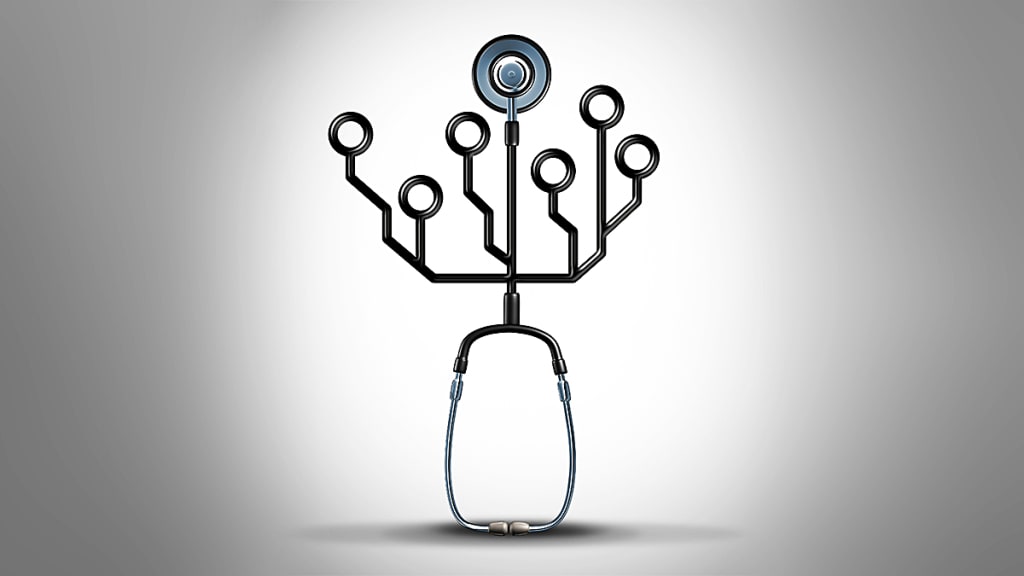
Artificial intelligence (AI) in future medicine
Artificial intelligence (AI) has the potential to revolutionize the field of medicine by improving diagnostic accuracy, predicting disease outcomes, and personalising treatment plans.
its impact is only expected to grow in the future.
Here are a few ways that AI is expected to shape the future of medicine:
Virtual medical assistants:
Predictive medicine AI:
Automated medical imaging:
Personalized medicine:
Drug development AI :
Virtual medical assistants:
In the future, AI-powered virtual medical assistants could assist doctors and nurses in diagnosing and treating patients. These virtual assistants could help with tasks such as scheduling appointments, answering patient questions, and even performing basic diagnostic procedures.
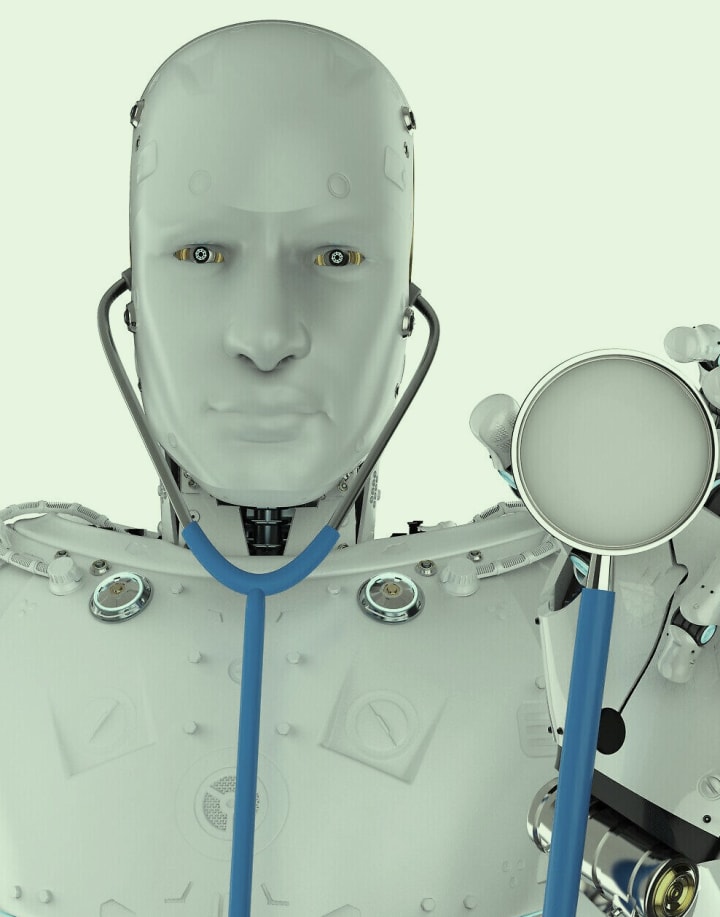
Artificial intelligence (AI) virtual medical assistants are a relatively new but rapidly growing technology in the field of medicine. These virtual assistants are designed to assist doctors and nurses in diagnosing and treating patients, and can help with tasks such as scheduling appointments, answering patient questions, and even performing basic diagnostic procedures.
One of the main advantages of AI virtual medical assistants is that they can be available 24/7, which means that patients can access medical advice and assistance at any time of the day or night. They can also help to reduce the workload of healthcare professionals, allowing them to focus on more complex and critical tasks.
AI virtual medical assistants can be accessed through a variety of platforms, including smartphones, tablets, and computers. They can also be integrated with other healthcare technologies, such as electronic health records (EHRs), to provide more accurate and personalized care.
One example of AI virtual medical assistants is symptom-checking chatbots. These chatbots use natural language processing (NLP) and machine learning algorithms to understand patient questions and provide relevant and accurate information. They can also help to triage patients and direct them to the appropriate level of care, whether that be a primary care physician, a specialist or an emergency room.
Another example of AI virtual medical assistants is virtual medical scribe. These assistants can transcribe, interpret, and analyze the doctor-patient conversation, and create a structured EHR from the conversation.

While AI virtual medical assistants have the potential to greatly improve the healthcare experience for patients, it is important to note that they are not a substitute for human healthcare professionals. They should be used as an aid and not a replacement for doctors and nurses.
AI virtual medical assistants are an exciting new technology that has the potential to greatly improve the healthcare experience for patients. As the technology continues to advance, we can expect to see even more applications of AI virtual medical assistants in the future.
Predictive medicine AI:
AI algorithms will be used to analyze patient data and predict the likelihood of a person developing a certain disease. This could help doctors identify potential health issues before they become serious, enabling them to take preventative measures and provide more personalized care.
Predictive medicine AI refers to the use of artificial intelligence (AI) algorithms to analyze patient data and predict the likelihood of a person developing a certain disease. This technology has the potential to greatly improve healthcare by enabling doctors to identify potential health issues before they become serious, enabling them to take preventative measures and provide more personalized care.
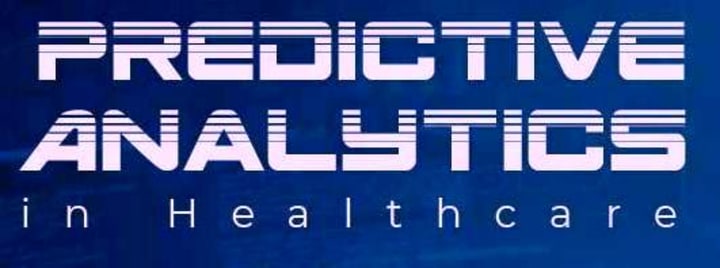
One of the key components of predictive medicine AI is machine learning, which is a type of AI that allows algorithms to learn from data and improve their predictions over time. This means that as more patient data is collected and analyzed, the predictions made by the AI algorithms will become more accurate.
Predictive medicine AI can be used to analyze a wide range of patient data, including demographic information, medical history, lab results, and even genetic data. The AI algorithms can then use this data to predict the likelihood of a patient developing a particular disease, such as cancer or heart disease.
One of the most common applications of predictive medicine AI is in identifying individuals at high risk for chronic diseases, such as diabetes and heart disease. By analyzing patient data, AI algorithms can identify patterns and biomarkers that are associated with a higher risk of these diseases, and then use this information to develop personalized prevention and management plans for those individuals.
Another application of predictive medicine AI is in drug development, where the technology is used to identify new drug targets and predict which compounds are most likely to be effective in treating a particular disease.
While predictive medicine AI has the potential to greatly improve healthcare, it is important to note that the technology is still in its early stages and more research is needed to fully understand its capabilities and limitations. Additionally, it is important to consider the ethical implications of using AI in healthcare, especially when it comes to patient privacy and data security.
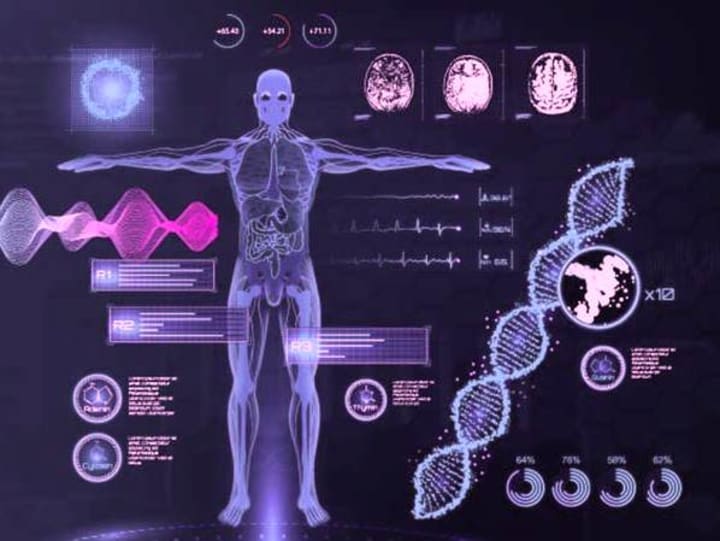
predictive medicine AI has the potential to revolutionize healthcare by enabling doctors to identify potential health issues before they become serious and provide more personalized care. As the technology continues to advance, we can expect to see even more applications of predictive medicine AI in the future.
Automated medical imaging:
AI algorithms could be used to analyze medical images, such as X-rays and CT scans, to identify patterns that may indicate the presence of a disease.
This could help radiologists make more accurate diagnoses, especially for conditions that are difficult to detect on imaging.
Automated medical imaging is the use of artificial intelligence (AI) algorithms to analyze medical images, such as X-rays and CT scans, to identify patterns that may indicate the presence of a disease. This technology has the potential to greatly improve diagnostic accuracy, especially for conditions that are difficult to detect on imaging.
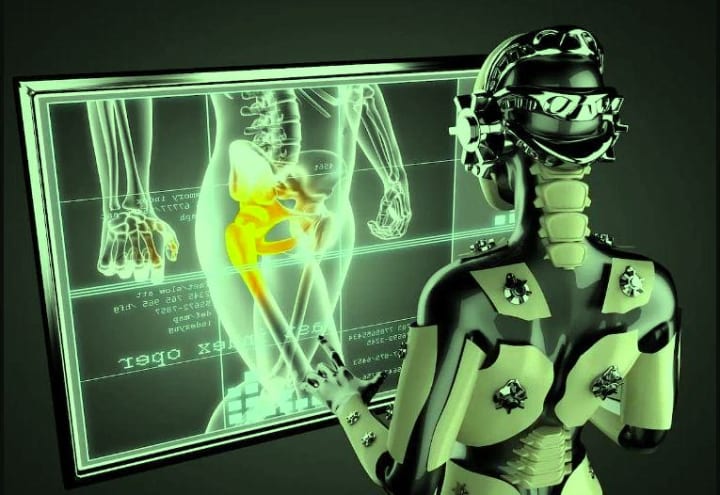
One of the key components of automated medical imaging is machine learning, which is a type of AI that allows algorithms to learn from data and improve their predictions over time. By analyzing large amounts of medical images and the corresponding diagnostic information, machine learning algorithms can learn to identify patterns and biomarkers that are associated with specific diseases or conditions.
Automated medical imaging can be used to analyze a wide range of medical images, including X-rays, CT scans, MRI, and ultrasound images. The AI algorithms can then use this data to identify patterns that may indicate the presence of a disease, such as cancer, heart disease or stroke.
One of the most common applications of automated medical imaging is in detecting and diagnosing lung cancer. By analyzing CT scans, AI algorithms can identify patterns and biomarkers that are associated with lung cancer, which can help radiologists make more accurate diagnoses.
Another application of automated medical imaging is in detecting and diagnosing pathology on biopsy images, where AI algorithms can identify patterns and biomarkers that are associated with specific diseases or conditions.
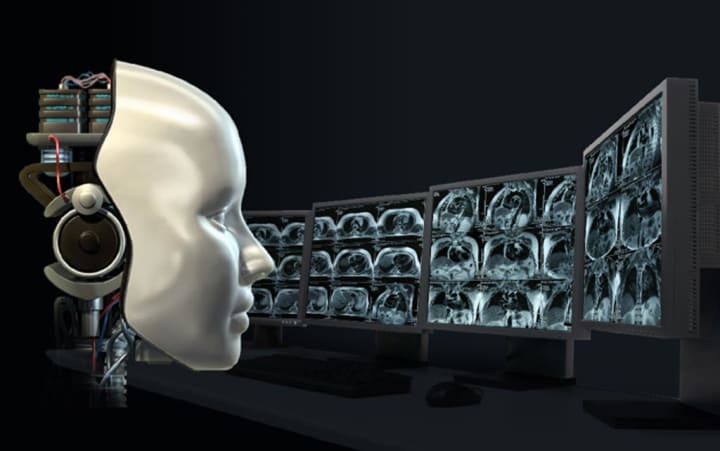
While automated medical imaging has the potential to greatly improve diagnostic accuracy, it is important to note that the technology is still in its early stages and more research is needed to fully understand its capabilities and limitations. Additionally, it is important to consider the ethical implications of using AI in healthcare, especially when it comes to patient privacy and data security.
automated medical imaging is an exciting new technology that has the potential to greatly improve diagnostic accuracy, especially for conditions that are difficult to detect on imaging. As the technology continues to advance, we can expect to see even more applications of automated medical imaging in the future.
Personalized medicine:
AI algorithms will be used to analyze a patient's medical history, lab results, and other data to predict their risk of developing a particular disease or complication,
and to identify the best treatment options for that patient. This could enable doctors to provide more personalized care, which is tailored to the individual's unique needs.
Personalized medicine AI refers to the use of artificial intelligence (AI) algorithms to analyze a patient's medical history, lab results, and other data to predict their risk of developing a particular disease or complication, and to identify the best treatment options for that patient. This technology has the potential to greatly improve healthcare by enabling doctors to provide more personalized care, which is tailored to the individual's unique needs.

One of the key components of personalized medicine AI is machine learning, which is a type of AI that allows algorithms to learn from data and improve their predictions over time. By analyzing large amounts of patient data, machine learning algorithms can learn to identify patterns and biomarkers that are associated with specific diseases or conditions.
Personalized medicine AI can be used to analyze a wide range of patient data, including demographic information, medical history, lab results, and even genetic data. The AI algorithms can then use this data to predict a patient's risk of developing a particular disease, such as cancer or heart disease, and to identify the best treatment options for that patient.
One of the most common applications of personalized medicine AI is in identifying individuals at high risk for chronic diseases, such as diabetes and heart disease. By analyzing patient data, AI algorithms can identify patterns and biomarkers that are associated with a higher risk of these diseases, and then use this information to develop personalized prevention and management plans for those individuals.
Another application of personalized medicine AI is in drug development, where the technology is used to identify new drug targets and predict which compounds are most likely to be effective in treating a particular disease.
While personalized medicine AI has the potential to greatly improve healthcare, it is important to note that the technology is still in its early stages and more research is needed to fully understand its capabilities and limitations. Additionally, it is important to consider the ethical implications of using AI in healthcare, especially when it comes to patient privacy and data security.
personalized medicine AI has the potential to revolutionize healthcare by enabling doctors to provide more personalized care, which is tailored to the individual's unique needs. As the technology continues to advance, we can expect to see even more applications of personalized medicine AI in the future.
Drug development AI :
AI algorithms will be used to analyze data from scientific literature, clinical trials,
and other sources to identify potential drug targets and predict which compounds are most likely to be effective in treating a particular disease.
This could help speed up the drug development process and lead to the development of new and more effective treatments.
Drug development AI refers to the use of artificial intelligence (AI) algorithms to analyze data from scientific literature, clinical trials, and other sources to identify potential drug targets and predict which compounds are most likely to be effective in treating a particular disease. This technology has the potential to greatly improve the drug development process and lead to the development of new and more effective treatments.
One of the key components of drug development AI is machine learning, which is a type of AI that allows algorithms to learn from data and improve their predictions over time. By analyzing large amounts of data from scientific literature, clinical trials, and other sources, machine learning algorithms can learn to identify patterns and biomarkers that are associated with specific diseases or conditions.
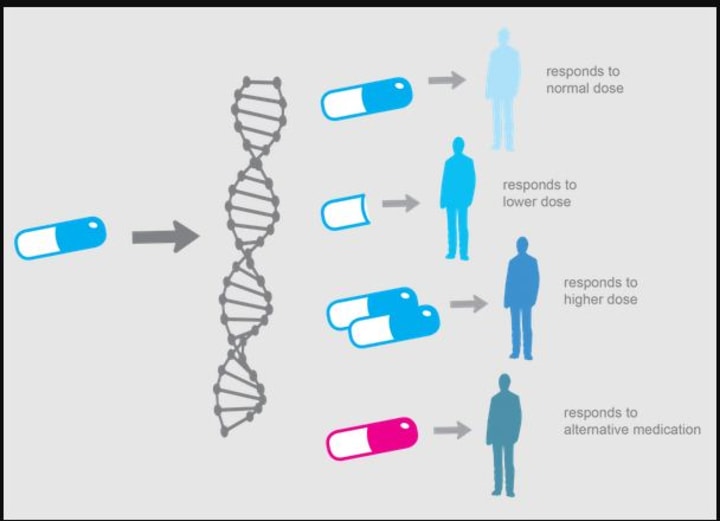
Drug development AI can be used to analyze a wide range of data, including genetic data, protein data, and chemical data. The AI algorithms can then use this data to identify potential drug targets and predict which compounds are most likely to be effective in treating a particular disease.
One of the most common applications of drug development AI is in identifying potential drug targets for a particular disease. By analyzing data from scientific literature and genetic data, AI algorithms can identify patterns and biomarkers that are associated with a particular disease, and then use this information to identify potential drug targets.
Another application of drug development AI is in predicting the efficacy of potential drugs. By analyzing data from pre-clinical studies and clinical trials, AI algorithms can predict which compounds are most likely to be effective in treating a particular disease.
While drug development AI has the potential to greatly improve the drug development process, it is important to note that the technology is still in its early stages and more research is needed to fully understand its capabilities and limitations. Additionally, it is important to consider the ethical implications of using AI in healthcare, especially when it comes to patient privacy and data security.
drug development AI is an exciting new technology that has the potential to greatly improve the drug development process and lead to the development of new and more effective treatments. As the technology continues to advance, we can expect to see even more applications of drug development AI in the future.
AI has the potential to greatly improve the field of medicine in the future by helping doctors to diagnose and treat patients more effectively, and by enabling more personalized and preventative care. However, as the technology advances, it is important to consider the ethical implications of AI in healthcare, especially when it comes to patient privacy and data security.
About the Creator
ARUNINFOBLOGS
A information content writer creating engaging and informative content that keeps readers up-to-date with the latest advancements in the field.
Most of i write about Technologies,Facts,Tips,Trends,educations,healthcare etc.,

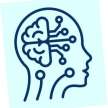




Comments
There are no comments for this story
Be the first to respond and start the conversation.